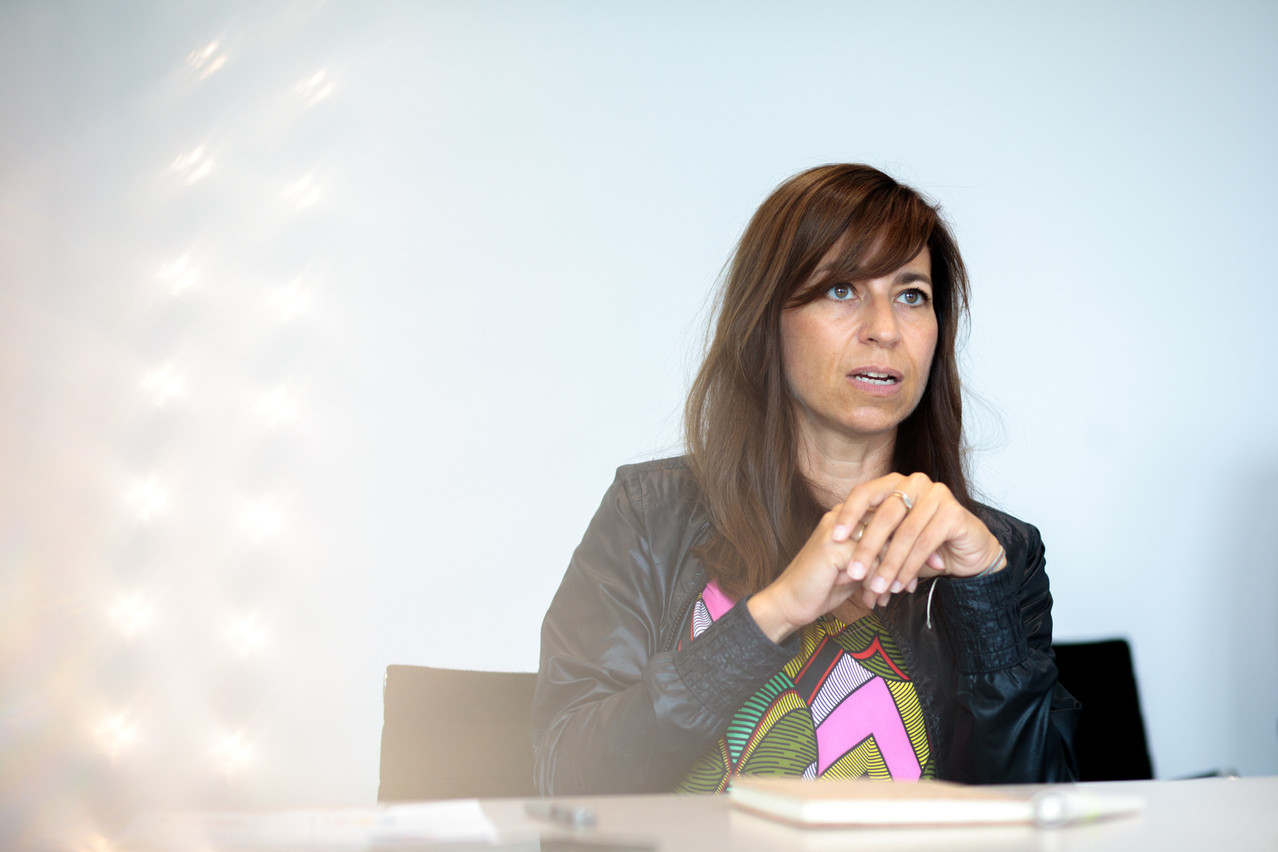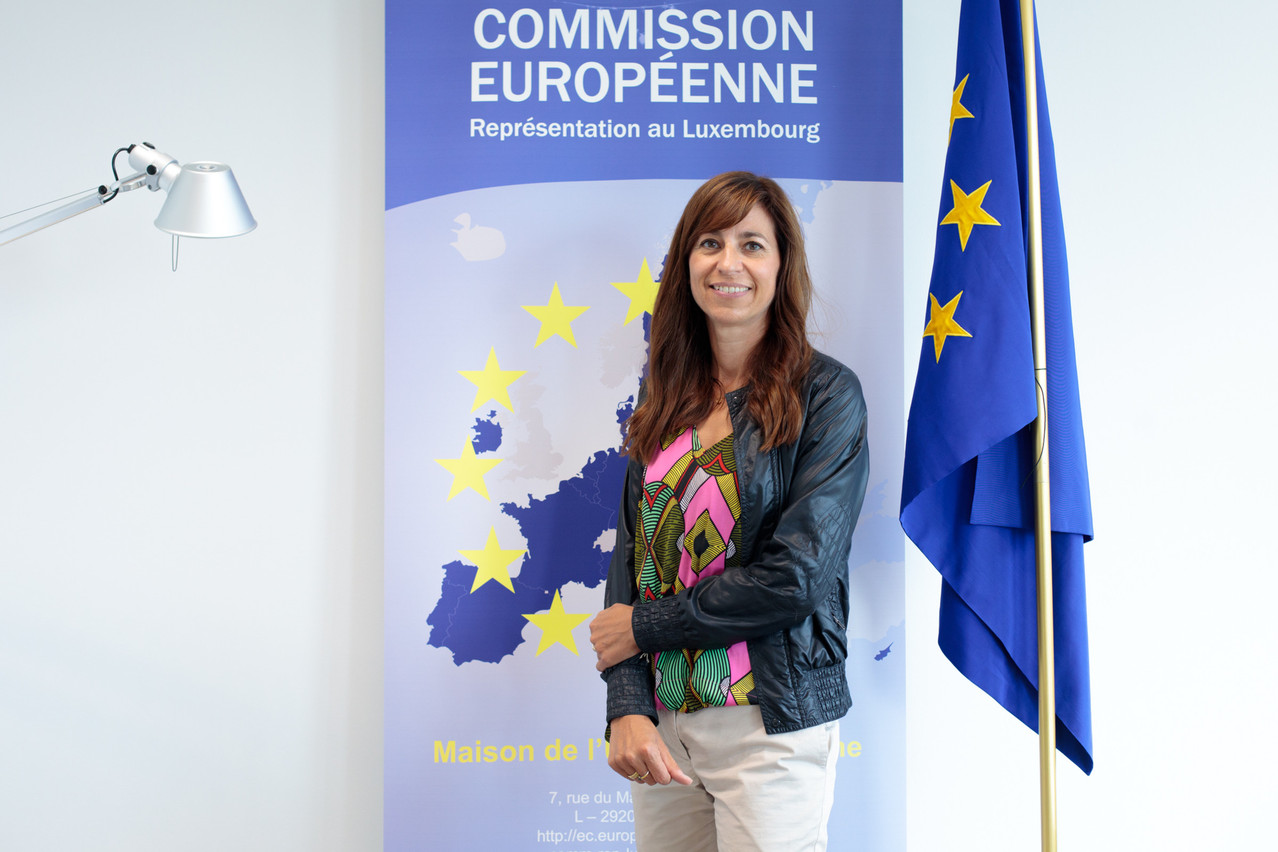Formerly head of cabinet at the ministry of health, Anne Calteux has been the new director of the European Commission's representation office in Luxembourg since July. It’s a return to her roots, as Calteux already spent 10 years of her professional life in Brussels. As head of the representation, she will help facilitate communication from the commission to the member states and citizens--and from the member states to the commission, by informing the latter of the reality on the ground. This is a way of strengthening citizens' trust in the European institutions, which has been undermined by the recent months of crisis.
You held a crucial position in the ministry of health. You are leaving at a time when the pandemic is far from over. What motivated your decision to leave?
Anne Calteux: It's not an opportunity that comes along every day, only every four or five years. The selection process is long. And I had been passionate about this subject since my studies. So I took a chance. It's also a return to my roots, because before I was at the ministry of health, I was in Brussels for 10 years and I already had an overview of European issues.
What is your role in the Commission Representation?
Our role is to help facilitate communication from Brussels to Luxembourg. I am involved in the commission's efforts to clarify what it does and what its priorities are. Someone who understands better what is going on is more likely to accept it, so it's with the aim of getting people on board.
The other part is the reporting from Luxembourg to Brussels. We report to Brussels on the climate, covid, diplomacy and the economy. This is a very important aspect, especially for small states: it allows the commission to know what is happening in their midst, on the ground.
We also have a whistleblower role, when something happens here that the commission should know about. We pass on the information we get by asking in the ministries or by scanning the press.
Luxembourg is a rather Europhile country compared to other EU countries. Does this change your approach?
In terms of trust in the EU, there is still a lot to do. It has decreased since the last Eurobarometer (confidence in the EU has decreased by 7% in Luxembourg compared to April 2021, according to the Eurobarometer published on 10 September 2021, editor's note). But Luxembourgers feel they are European citizens (88% of Luxembourgers, the highest rate in the EU, editor's note). After the last few months of crisis, people are asking a lot of questions. It is up to the commission and the representation office to answer.
You work for the Commission. But you are from Luxembourg and your previous job was in the government. If there is a conflict of interest between Luxembourg and the commission, where does your loyalty lie?
My loyalty is to the commission. I am also loyal to Luxembourg, but my mandate is to work hand in hand with the commission. My employer is Ursula von der Leyen, I no longer work for the government.
My loyalty is to the commission.
However, by contributing to the commission's explanation efforts, I can also help local actors to better accept and implement European initiatives. In this way, I hope to be of use to the government.
Do you have any concrete examples of what you will be doing in the near future?
This weekend we were at the Open Air festival, an opportunity to meet a young audience, which is our target.
On 15 September, commission president Ursula von der Leyen will give her State of the EU address. It is a question of the representations explaining what the President meant. And we will deploy these explanations in a way that is useful for Luxembourg, so that the country feels concerned.

"The climate is very important," says Anne Calteux. "It is a subject that allows us to actively involve young people, who want to live in a healthy environment. (Photo: Matic Zorman/Maison Moderne)
On 17 September, a hybrid debate will be held, in face-to-face and livestream format, to present the commission's 2022 agenda, again with a view to a stakeholder ownership. MEPs will also be present.
Which issues are close to your heart?
Climate is very important. The new Eurobarometer has just come out and the three subjects that concern Luxembourg residents the most are housing, the cost of living and the climate. It is also a subject that allows for the active involvement of young people, who want to live in a healthy environment.
Digitalisation is also an important issue for our country, and young people can identify with it. This is an opportunity to explain to them what the EU can do for Luxembourg, with the EU SPC, supercomputing or upcycling. I personally like it a lot.
This article on Paperjam.lu. It has been translated and edited for Delano.lu

